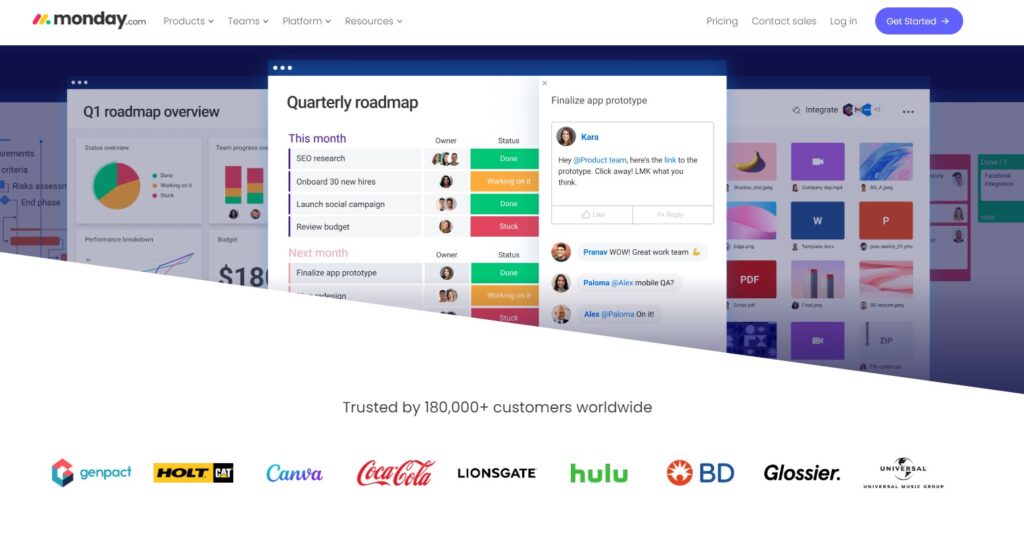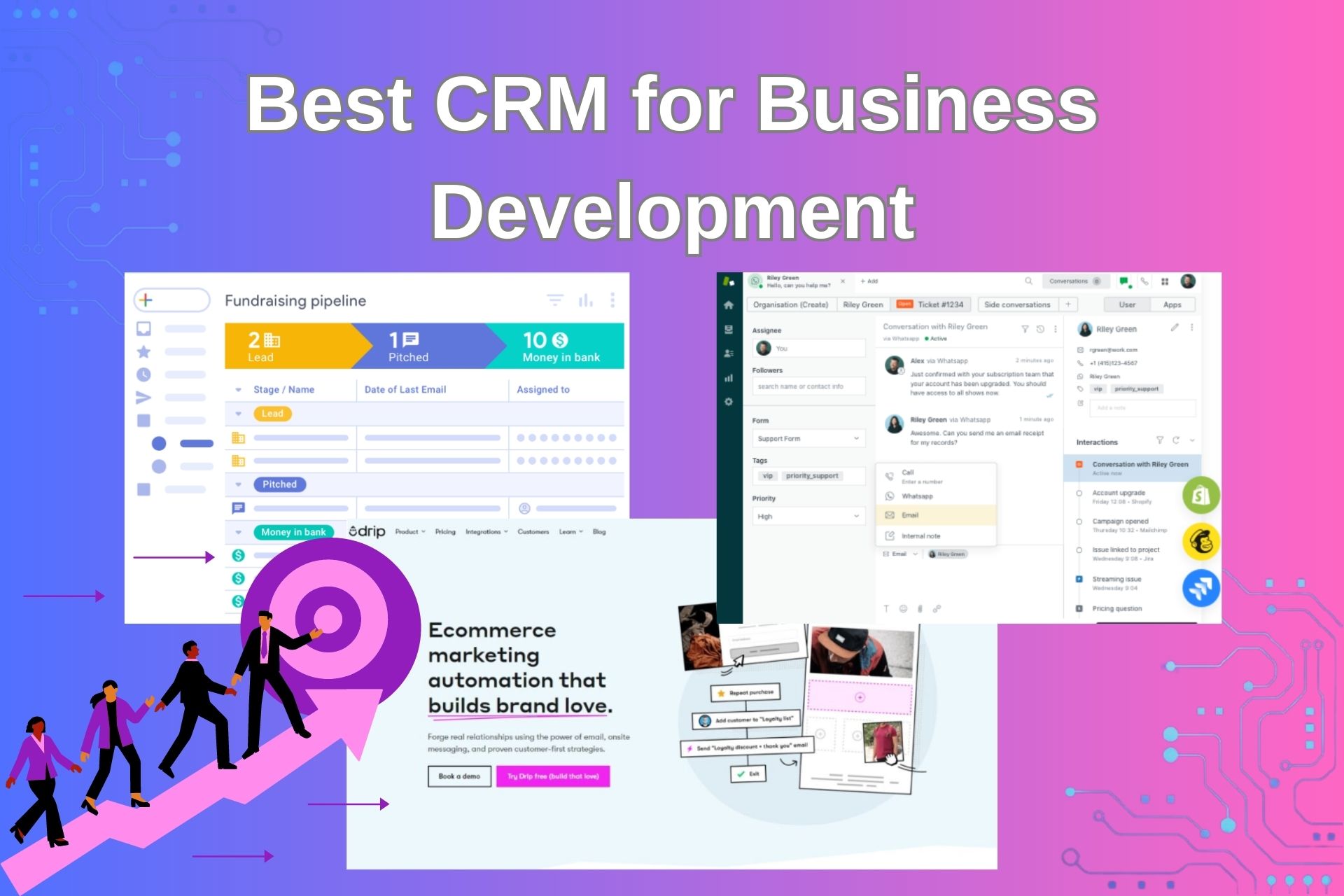Best CRM for Business Development: In the fast-paced world of business, selecting the right CRM system can be a game-changer. From customization to implementation and measuring success, every step is crucial for growth and development.
This comprehensive guide will walk you through the essential factors, customization options, implementation strategies, and measurement techniques to ensure your CRM aligns perfectly with your business goals.
Importance of CRM in Business Development
Customer Relationship Management (CRM) software plays a crucial role in facilitating business growth by helping companies manage interactions with existing and potential customers. By centralizing customer data and automating processes, CRM systems enable businesses to improve customer relationships, streamline sales and marketing activities, and enhance overall business performance.
Explain how CRM software aids in business growth.
CRM software aids in business growth by providing a comprehensive view of customer interactions, preferences, and purchase history. This information allows businesses to personalize their marketing efforts, tailor products or services to meet customer needs, and ultimately increase customer satisfaction and loyalty.
Identify key features of a CRM system that support business development.

Key features of a CRM system that support business development include contact management, sales automation, lead tracking, reporting and analytics, customer service tools, and integration capabilities with other business applications.
Share examples of successful businesses utilizing CRM for growth.
Companies like Salesforce, HubSpot, and Zoho CRM have successfully utilized CRM systems to drive growth and improve customer relationships. These businesses have leveraged CRM software to increase sales productivity, improve customer retention, and boost overall business performance.
Factors to Consider When Choosing a CRM
When selecting a CRM system, businesses should carefully consider several factors to ensure that the software meets their specific needs and aligns with their business development goals.
Detail the essential factors businesses should consider when selecting a CRM.
Some essential factors to consider when choosing a CRM include scalability, customization options, integration capabilities, ease of use, pricing, customer support, and data security features.
Compare different CRM options based on scalability for business development.
Businesses should evaluate CRM options based on their scalability to accommodate growth and adapt to changing business needs. Scalable CRM systems can grow with the business and support expansion without requiring a complete system overhaul.
Discuss the importance of integration capabilities with existing business tools.

Integration capabilities with existing business tools such as email marketing platforms, accounting software, and e-commerce platforms are crucial for ensuring seamless data flow and process automation across different departments.
Customization and Adaptability: Best Crm For Business Development
Customizing and adapting CRM systems to align with specific business development strategies is essential for maximizing the software’s effectiveness and achieving desired outcomes.
Elaborate on the significance of CRM customization for aligning with business development strategies.
Customizing CRM systems allows businesses to tailor the software to their unique processes, workflows, and objectives, ensuring optimal alignment with business development strategies and goals.
Provide examples of how businesses can tailor CRM systems to meet their specific development needs.
Businesses can customize CRM systems by creating custom fields, workflows, reports, and dashboards that reflect their specific requirements and enable them to track and analyze data relevant to their business development goals.
Discuss the role of adaptable CRM features in accommodating evolving business requirements.
Adaptable CRM features such as flexible reporting tools, customizable dashboards, and automation capabilities play a crucial role in accommodating evolving business requirements, enabling businesses to respond quickly to changing market conditions and customer needs.
CRM Implementation and Training
Successful CRM implementation and employee training are key components of leveraging CRM software to support business development goals effectively.
Discuss best practices for successful CRM implementation to support business development goals.
Best practices for CRM implementation include defining clear objectives, involving key stakeholders, conducting thorough data migration, providing adequate training, and establishing performance metrics to measure success.
Share insights on the importance of training employees to effectively use CRM tools.
Training employees on how to effectively use CRM tools is essential for maximizing the software’s benefits, improving user adoption rates, and ensuring that employees can leverage the system to enhance customer relationships and drive business growth.
Discuss strategies for overcoming common challenges during CRM integration and training processes.
Common challenges during CRM integration and training processes include resistance to change, data quality issues, lack of user engagement, and inadequate support. Strategies for overcoming these challenges include effective communication, ongoing training, and providing resources for user support.
Measuring Success with CRM

Establishing key performance indicators (KPIs) and analyzing CRM data are essential for measuring the impact of CRM on business development and making informed decisions to drive growth.
Design key performance indicators (KPIs) to measure the impact of CRM on business development.
Key performance indicators such as customer retention rates, sales conversion rates, customer satisfaction scores, and revenue growth can be used to measure the effectiveness of CRM in supporting business development initiatives.
Explain how businesses can analyze CRM data to track progress and make informed decisions., Best crm for business development
Analyzing CRM data allows businesses to track progress, identify trends, and gain insights into customer behavior, preferences, and buying patterns. This data-driven approach enables businesses to make informed decisions, optimize strategies, and drive continuous improvement.
Share examples of businesses that have successfully measured ROI with CRM implementation.
Companies like Amazon, Microsoft, and Dell have successfully measured return on investment (ROI) with CRM implementation by tracking key metrics, analyzing data, and aligning CRM strategies with business objectives to drive growth, improve customer relationships, and increase profitability.
Final Wrap-Up
As you embark on your CRM journey, remember that the best CRM for business development is not just a tool—it’s a strategic asset that can propel your business to new heights. By carefully choosing, customizing, implementing, and measuring the success of your CRM, you pave the way for sustainable growth and long-term success.
Questions and Answers
How can CRM software aid in business growth?
CRM software helps businesses streamline processes, improve customer relationships, and drive sales, ultimately leading to business growth.
What are the key features of a CRM system that support business development?
Key features include contact management, sales automation, analytics, reporting, and integration capabilities with other business tools.
Why is CRM customization important for aligning with business development strategies?
Customization allows businesses to tailor the CRM system to their specific needs, ensuring it aligns perfectly with their growth strategies.
What are the best practices for successful CRM implementation?
Best practices include setting clear goals, involving key stakeholders, providing adequate training, and continuously monitoring and improving the system.
How can businesses measure success with CRM?
Businesses can measure success by defining key performance indicators (KPIs), analyzing CRM data, tracking progress, and evaluating the return on investment (ROI) from CRM implementation.
